“Where did you hear that word?!”
We realize pretty quickly that children are parrots, don’t we? As a result, most of us attempt to temper what we say and how we say it.
My wife and I decided early on to crack down on how we spoke about others— especially in front of the kids. If you had asked me a few months ago if we had followed through, I would have told you that for the most part, yes. Our kids, for the most part, have followed suit.
Then came COVID, virtual learning, and election season.
A scary, subtle monster
During all of 2020’s craziness, I have to admit, there are times I’ve behaved in ways that lead me to say: “Who are you, and where did that come from? Pull it together, brother!”
Then there’s the scarier, subtler monster that leaks out of me in ways I don’t even notice until I do it— a mumbled comment here, a chuckle at the expense of others there, even making comments that add negativity to an otherwise benign conversation.
An echo chamber in our home
This slippery slope came to my attention when, for several days in a row, my 15-year-old daughter started sending me TikTok videos that validated how I was thinking and feeling politically.
At first, the videos made me laugh and, on some level, I was pleased my daughter shared my views.
Then I started to wonder: how did she know that I would like these? Surely my iron-clad rule— my commitment to speaking in a Galatians 5:22 way— had kept me from voicing my political views in a negative, hurtful way.
Wrong.
I realized I hadn’t been expressing my political views in a way that looked anything like Jesus. My words, my tone, my face, even my thoughts, didn’t reflect Him at all.
I realized I hadn’t been expressing my political views in a way that looked anything like Jesus.
Jesus explains in Luke 6:45 that our words are an overflow of our heart. All the political news and noise I had allow myself to consume, had impacted my mind which impacted my heart which impacted my words, which impacted my daughter.
Ouch.
My daughter was living in an echo chamber not just on her phone, but in her home. One that I helped create.
A book on kindness saves the day
How could I teach my daughter to speak about others— including our political leaders— in constructive ways?
Almost on cue, I was handed a gift. My friend and co-worker, Sarah Anderson, gave me a pre-released copy of her book, The Space Between Us: How Jesus Teaches Us to Live Together When Religion and Politics Pull Us Apart. Sarah is a brilliant writer and thinker who grew up in a political family in Washington, D.C. The book goes deep on every level, but there is a stream of refreshing kindness that runs throughout.
I think we can all agree that the world needs kindness now more than ever. The world needs more Jesus. The world needs more people who look increasingly like Him.
We crave people who love people— especially when it’s hard. I won’t spoil the book for you, but it’s a must-read if you want to love others well despite (or perhaps because of) all the political chaos.
And it’s a must-read if you want to help your teenagers do the same.
Repent, pray, and ask good questions
After reading the book, I came to my daughter and repented.
Then we sat down together as a family to watch an interview Sarah Anderson did with Andy Stanley. I wanted my daughter to see and hear from Sarah, who I knew she would resonate with. I wanted her to see Sarah as a role model because I believe Sarah may just be the Mr. Rogers, Dolly Parton, and Ted Lasso of the political world.
Overstating? I think not. People are thirsty for kindness. I’m thirsty for kindness.
My prayer: God, I blew it on this one. But You redeem things, moments, people, parents— even me. Help me to love my daughter in a way— to live in a way— that echoes the things that make You smile as my Father and hers.
Here are a few questions I pirated from Sarah’s book and my conversation with my daughter that might get your teenager talking about the often-unkind world of politics.
- Do you ever think about politics? If so, what do you think?
- Why do you think people are so divided when it comes to politics?
- Do you think it is possible to change someone’s mind? If so, how?
- Why do you think it is important to learn from people who think differently than you?
- How can we be loving and respectful of people we KNOW are wrong?
- How does Jesus change things? How did He engage with politics? How did He treat people who disagreed with Him?
share this
FREE RESOURCE

Get the Family Vision eBook
Build unity and gain Gospel-centered clarity for life's big and small decisions. Download our 54 page eBook, Crafting Your Own Family Vision Statement by filling out the form below.
We’ll never sell your info. Unsubscribe any time.
about the author
Ted Lowe
Ted Lowe is a speaker, writer, and the Executive Director of Marriage Strategies at Orange. A graduate from Fuller Theological Seminary, in Pasadena, California, he currently lives in Cumming, Georgia, with his four favorite people: his wife, Nancie, and their three children.
Ted is co-author of Married People: How Your Church Can Build Marriages that Last, and author of Your Best Us.
For more information about Ted and MarriedPeople, visit MarriedPeople.org or join him on Facebook or Twitter.
related posts
Making the Most of Time with Young Children
Time is a gift from God. Let’s be sure to invest it in our children.





